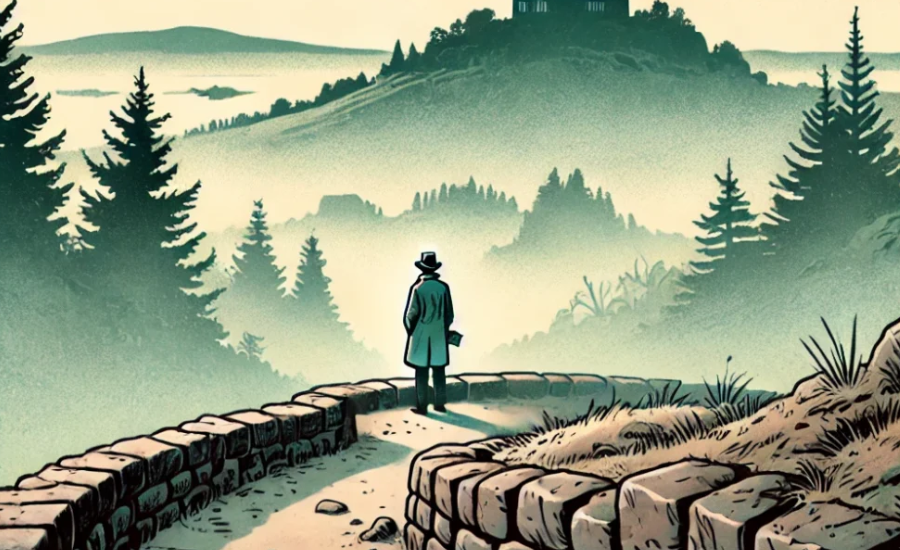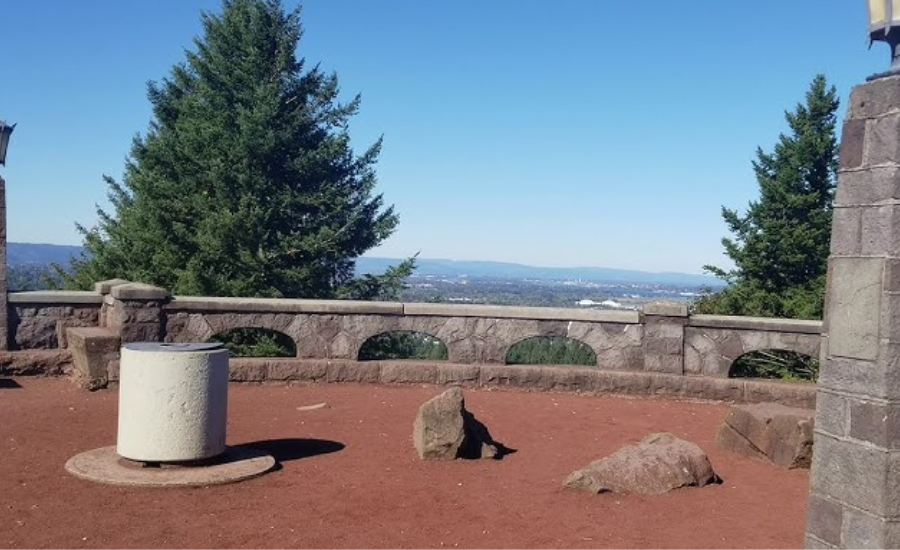The tragic death of an individual, identified as Sokolov suicide Rocky ButteOregon, has left a profound mark on the local community and beyond. Rocky Butte, a scenic landmark known for its panoramic views and serene landscapes, became the scene of a deeply saddening event that has reverberated through the region. This incident has compelled residents and visitors alike to reflect not only on the beauty of this cherished spot but also on the fragile nature of human life and the importance of mental health.
This article seeks to examine the events leading up to Sokolov’s tragic passing, the impact on the Rocky Butte community, and the broader lessons that can be drawn from this tragedy. In exploring the aftermath, we must look beyond the immediate loss and delve into the societal challenges surrounding mental health and community support, which, if addressed collectively, could prevent such tragedies from recurring.
Rocky Butte: A Landmark Of Peace And Recreation

Rocky Butte, a historically rich area nestled in Oregon, draws many visitors with its natural beauty and tranquil atmosphere. Known for its open skies, sweeping views of the surrounding landscape, and its long-standing historical significance, Rocky Butte has always been a sanctuary for those seeking a quiet retreat from urban life. Its unique appeal lies not only in its physical beauty but also in its symbolism of peace and serenity for many Oregonians.
However, the tranquility of Rocky Butte was shattered by Sokolov’s suicide, marking a somber turn in its history. The incident has raised difficult questions about the mental health crisis affecting people across different walks of life and about how we, as a society, handle such challenges.
A Community in Shock: The Initial Response
The news of the tragic incident spread quickly through Oregon’s communities, especially among those who frequent Rocky Butte. Known for its hiking trails and scenic overlooks, Rocky Butte is a popular destination for families, nature enthusiasts, and tourists. Thus, the shock of learning about a death in such a beloved place hit the community especially hard.
People responded with a range of emotions, from sorrow and disbelief to frustration and introspection. Many residents expressed grief not only over the loss of Sokolov but also over the reminder of the pervasive and often silent struggles people face. Community groups, support organizations, and individuals gathered to hold vigils and memorials, creating spaces for those affected to share their feelings and support each other.
The initial days following the tragedy saw an outpouring of support, but they also highlighted the need for greater awareness of the mental health struggles that countless individuals face. The incident served as a call to action for those in the community to reassess their approach to mental health support and community well-being.
Understanding Circumstances Surrounding Sokolov’s Death

In the wake of Sokolov’s death, many people sought to understand the circumstances that might have led to the tragedy. Often, the reasons behind such decisions are complex, involving a multitude of personal, psychological, and societal factors. While details about Sokolov’s personal life remain private, the incident has sparked broader discussions around mental health and the lack of adequate resources for those in distress.
Tragic events like this one serve as somber reminders of the importance of mental health support. For many, the pressures of life, coupled with feelings of isolation or despair, can become overwhelming. In rural or semi-urban areas, access to mental health resources is often limited, and individuals may not feel they have places to turn for support. Furthermore, stigma around mental health remains a significant barrier, preventing many from seeking help.
For some, the act of coming to a location like Rocky Butte may represent a final attempt to find solace in nature. The peaceful surroundings can offer a sense of calm or even catharsis, but for those in severe distress, it may not be enough to counter the weight of their struggles.
Community Reflection And Calls For Change
Sokolov suicide Rocky Butte’s death has catalyzed a profound period of reflection for the Rocky Butte community and the wider region. There has been an increase in conversations about mental health resources, support networks, and how society can better serve individuals in need. Local organizations and advocacy groups have come forward, expressing the urgent need to expand mental health services and make them more accessible to people across Oregon.
This tragedy has led to increased advocacy for initiatives that promote mental wellness. For instance, mental health organizations have urged lawmakers to allocate more resources for mental health programs, especially in remote or underserved areas. Additionally, the tragedy has prompted discussions about establishing more community-based support networks, where people can seek help in times of crisis without fear of judgment or stigma.
Raising Awareness About Mental Health: Breaking The Stigma

One of the critical outcomes of this tragedy has been the intensified focus on the mental health crisis that affects communities across the country. Mental health challenges are often hidden, and many people suffer in silence due to the stigma surrounding mental health issues. This incident at Rocky Butte has served as a wake-up call, underscoring the need for society to be more empathetic and supportive.
To make a real difference, communities must strive to create an environment where people feel safe to talk about their struggles. Schools, workplaces, and community centers could serve as critical points of intervention, providing resources, support, and encouragement to those facing difficulties. By normalizing mental health discussions, society can foster a culture where seeking help is seen as a strength rather than a weakness.
In addition to offering support, education plays a vital role in preventing similar tragedies. Programs aimed at raising awareness about mental health issues can help equip people with the knowledge and tools they need to support themselves and others. By increasing understanding and empathy, communities can create a foundation of support that can significantly impact individuals struggling with mental health issues.
Memorializing Sokolov: Honoring The Lives Affected

To honor Sokolov’s memory and to recognize the countless others who face similar battles, the community has come together to advocate for change. The memorial services held at Rocky Butte not only celebrated Sokolov’s life but also served as a powerful statement about the community’s commitment to mental health awareness.
These memorials have become symbolic of a shared commitment to fostering empathy, compassion, and understanding. Local artists, advocates, and families have contributed to projects that memorialize Sokolov’s life and reinforce the importance of mental health support. These initiatives aim to remind the community of their collective responsibility to look out for one another, creating a culture of care and openness.
The incident has also sparked ideas for permanent memorials or initiatives that serve both as tributes to lives lost and as symbols of hope for those still struggling. For instance, a proposed mental health resource center or a support hotline could provide immediate assistance to individuals in distress. By creating resources that are accessible, compassionate, and non-judgmental, the community can honor Sokolov suicide Rocky Buttes memory in a way that actively contributes to preventing future tragedies.
Moving Forward: Building A More Supportive Community
The tragic incident at Rocky Butte underscores the necessity of compassion, empathy, and proactive mental health support. Moving forward, the community is exploring ways to ensure that support systems are in place and that those facing mental health challenges have access to the help they need. Local leaders, mental health professionals, and community members have engaged in discussions on how to build a more resilient and supportive environment for everyone.
Some community members have proposed programs that foster connections among residents. Initiatives such as community outreach programs, mental health workshops, and peer-support groups can provide crucial support networks. By promoting these kinds of initiatives, communities can build the kind of resilience and compassion needed to prevent similar tragedies.
Community Resilience in The Wake Of Sokolov’s Tragic Passing At Rocky Butte

The news of Sokolov suicide Rocky Butte’s tragic death at Rocky Butte cast a profound sadness over the local community, leaving individuals shocked and grappling with a mix of sorrow, confusion, and grief. The community, bound by shared appreciation for this scenic Oregon location, felt the impact of the loss deeply. Many had never personally known Sokolov, yet the event struck a powerful emotional chord, reminding everyone of the collective vulnerability and shared human experiences that bind communities together.
In the immediate aftermath, local residents rallied to offer support to one another, drawing on their communal strength to face a difficult reality. Vigils and memorials were quickly organized in memory of Sokolov, creating a safe and inclusive space for friends, families, and neighbors to gather, reflect, and find solace in shared memories. These events underscored the deep connections that unite people in times of sorrow and loss, as well as the essential role community plays in helping individuals find healing.
As the community united in grieving, the tragedy served as a poignant reminder of the importance of building and maintaining supportive networks. It illustrated that, through shared experiences and mutual support, people can find hope and resilience even in the face of devastating events. The coming together of friends, neighbors, and community members in remembrance of Sokolov’s life symbolized a powerful collective response—one rooted in empathy, compassion, and understanding.
Coming Together For Healing And Remembrance
The gathering of the Rocky Butte community in the wake of Sokolov suicide Rocky Butte’s passing highlights an important social truth: communities thrive when they support each other through difficult times. Vigils, gatherings, and memorials became more than just events; they were acts of solidarity, a way for people to remember and honor Sokolov suicide Rocky Butte’s life and to express the myriad emotions felt across the community.
The vigils provided an opportunity for individuals to reflect and share their feelings openly. Whether through words, moments of silence, or shared embraces, attendees found ways to connect and offer each other comfort. Stories were shared, memories recounted, and moments of silence held to honor Sokolov suicide Rocky Butte, allowing people to come together in an act of communal mourning.
This outpouring of support wasn’t only about grief—it was also a reminder of the strength that comes from community connections. As individuals gathered to comfort one another, a sense of belonging and unity emerged, highlighting the importance of community resilience. In such moments, the power of human connection shines through, serving as a lifeline for those in mourning and offering a reminder that no one must face hardship alone.
The Healing Power Of Shared Experiences
Tragedies like Sokolov suicide Rocky Buttes passing bring with them waves of emotional pain and sadness. However, within the grief lies the potential for healing through shared experiences and the exchange of heartfelt memories. As people came together, they found strength in each other’s presence, demonstrating the healing power that collective support can offer. Shared experiences, especially those that involve loss, create an unspoken bond among people. In facing a common sorrow, individuals often find comfort in the fact that they are not alone in their feelings.
The gathering at Rocky Butte symbolized more than just a memorial; it became an affirmation of the community’s resilience and the power of connection. The act of coming together allowed individuals to express their sorrow in an environment that understood and embraced their grief. This sense of solidarity enabled friends and neighbors to begin processing their feelings, which is an essential step in moving forward.
The process of healing in a community setting also emphasizes the value of empathetic listening and compassion. By being there for each other, individuals found the strength to cope with their grief, and together, they began to build a path toward healing. This shared journey reminded everyone involved that, while the pain of loss is undeniable, the support of a compassionate community can help individuals find hope and solace.
The Importance Of Reaching Out To Friends In Times Of Crisis
One crucial lesson that emerges from tragedies like Sokolov suicide Rocky Butte’s is the importance of supporting friends and loved ones through challenging times. Many people who experience emotional difficulties may feel isolated, and it is often the small gestures from those around them that make the most significant difference. Recognizing signs of struggle in others and reaching out with empathy and compassion can be invaluable in providing a sense of connection and relief.
Sometimes, just initiating a conversation can have a profound impact on someone’s emotional well-being. While people may fear saying the wrong thing, what matters most is the willingness to reach out and express genuine care. Simple acts, such as asking how someone is doing or offering a sympathetic ear, can make a person feel valued and understood. The tragedy at Rocky Butte underscores the importance of these small yet meaningful gestures, reminding us of our responsibility to look out for each other.
Being an empathetic listener is one of the most effective ways to support friends in distress. Creating a safe, non-judgmental space for someone to share their feelings can be immensely comforting. Sometimes, people just need someone who will listen without offering immediate solutions. By providing that supportive presence, friends and family can help individuals feel seen and heard, which can be a crucial first step in their journey toward healing.
Encouraging Professional Support As A Path To Healing
While the support of friends and family is invaluable, professional mental health care can offer individuals the specialized assistance they need to manage their emotional challenges effectively. Encouraging loved ones to seek help from trained professionals—such as counselors, therapists, or support groups—can provide them with the resources to address their struggles in a structured, supportive environment.
Mental health professionals are equipped to help individuals navigate complex emotions, offering techniques and tools that can aid in coping with grief, depression, or anxiety. Through therapy, individuals can gain a deeper understanding of their experiences and learn healthy ways to process and move forward. In some cases, professional support can be life-changing, providing people with the skills to manage their challenges and ultimately find renewed hope.
As the Rocky Butte community processed the tragedy of Sokolov suicide Rocky Butte’s passing, the importance of encouraging people to seek professional help became evident. Mental health care is essential not only for those in immediate crisis but also as a preventative measure for anyone struggling with emotional challenges. By fostering an environment where seeking help is normalized and encouraged, communities can create a supportive culture that promotes mental well-being.
Building A SupportiveAnd Resilient Community
In the wake of Sokolov suicide Rocky Butte’s passing, the Rocky Butte community has demonstrated the profound impact of coming together in support of one another. This tragedy has underscored the importance of fostering strong community ties, where people feel connected and supported. Building resilience within a community is not about erasing pain or forgetting loss—it is about creating a supportive environment where individuals can find strength, compassion, and understanding as they work through their grief.
Communities can create this supportive culture by encouraging open conversations about mental health and by reducing the stigma associated with seeking help. Community programs, mental health awareness campaigns, and peer-support networks can all play a role in fostering resilience. By building a network of support, communities can provide individuals with the resources they need to navigate life’s challenges and find hope in the face of adversity.
As the Rocky Butte community continues to honor Sokolov suicide Rocky Buttes memory, it has become evident that resilience is born from unity. When people come together, they find the strength to face even the most challenging situations, drawing on shared values, compassion, and empathy. The tragedy at Rocky Butte serves as a reminder that we all have a role to play in building a society that values and supports mental well-being.
Moving Forward: Embracing Compassion And Preventing Future Tragedies
The community’s response to Sokolov’s suicide Rocky Buttes passing has been marked by an outpouring of compassion, solidarity, and determination to create positive change. This tragic event serves as a powerful reminder that mental health is a fundamental part of overall well-being and that addressing mental health challenges requires collective effort. By supporting one another and encouraging open conversations, communities can take proactive steps to prevent similar tragedies.
Looking forward, the Rocky Butte community and others like it are committed to fostering an environment where people feel safe, valued, and supported. Through ongoing efforts to raise awareness about mental health, provide access to resources, and cultivate a culture of empathy, communities can help individuals find hope and healing. By working together, we can create a world where everyone feels empowered to seek help and where tragedies like Sokolov’s are less likely to occur.
Conclusion
Sokolov suicide Rocky Buttes passing has left a lasting impact on the Rocky Butte community, serving as both a source of grief and a catalyst for change. In the wake of this tragedy, the community has come together, demonstrating resilience, compassion, and a commitment to supporting one another. As they move forward, they carry with them the lessons learned from this experience—the importance of reaching out, listening, and creating a supportive network that values mental health.
’s memory, the community has reaffirmed its dedication to fostering a culture of compassion and empathy. By embracing these values and working together to support mental well-being, the Rocky Butte community has laid the foundation for a future where individuals feel connected, supported, and hopeful. This legacy of unity and resilience serves as a testament to the power of community and the enduring strength that can be found when people come together in the face of adversity.
Stay in touch for more updates and alters visit: Ny City Paper!
